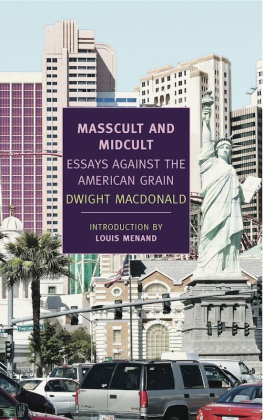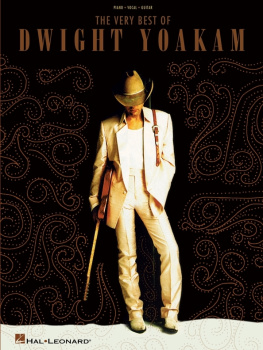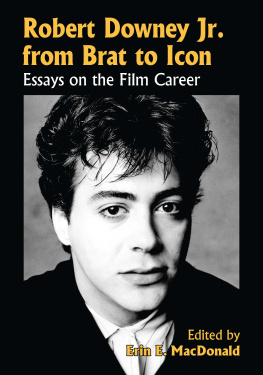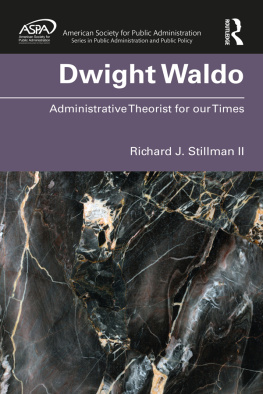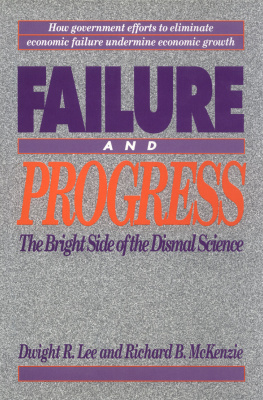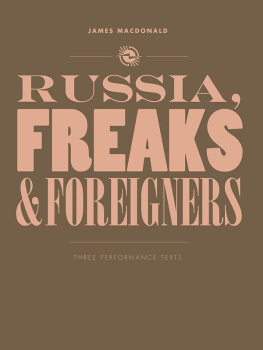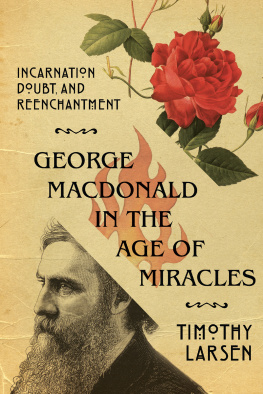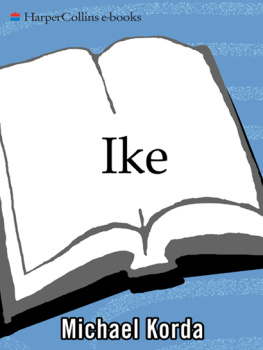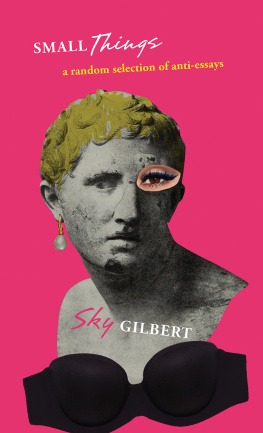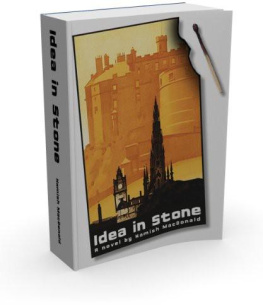DWIGHT MACDONALD (19061982) was born in New York City and educated at Exeter and Yale. On graduating from college, he enrolled in Macys executive training program, but soon left to work for Henry Luce at Time and Fortune, quitting in 1936 because of cuts that had been made to an article he had written criticizing U.S. Steel. From 1937 to 1943, Macdonald was an editor of Partisan Review and in 1944, he started a journal of his own, Politics, whose contributors included Albert Camus, Victor Serge, Simone Weil, Bruno Bettelheim, James Agee, John Berryman, Meyer Schapiro, and Mary McCarthy. In later years, Macdonald reviewed books for The New Yorker, movies for Esquire, and wrote frequently for The New York Review of Books.
JOHN SUMMERS is the editor of The Baffler.
LOUIS MENAND is the Anne T. and Robert M. Bass Professor of English at Harvard University and a staff writer at The New Yorker. He is the author of Discovering Modernism, The Metaphysical Club, American Studies, and The Marketplace of Ideas.
MASSCULT AND MIDCULT
Essays Against the American Grain
DWIGHT MACDONALD
Edited by
JOHN SUMMERS
Introduction by
LOUIS MENAND
NEW YORK REVIEW BOOKS

New York
Contents
Introduction
Dwight Macdonald was a man who was congenitally incapable of respect for authority, and whose talent and charm made this into an appealing trait of temperament rather than a professional liability. He not only enjoyed provoking; he liked to be provoked. He was nicely endowed to flourish in a provincial culturethe intellectual niche-world of New York City from the 1930s to the 1960swhere trading attacks and high-minded insults with former or future friends was regarded as simply one of the ways that work got done. Macdonald was vociferous, opinionated, and, when he was drunk, nasty and combative (though that was true of many of his peers: it was an alcoholic milieu). He was also, almost serenely, pure of heart. He was easy to quarrel with and, by most accounts, easy to forgive.
Macdonald began his intellectual career in the 1930s at the center of the great political cockfight between the Stalinists and the Trotskyists in New York City, then broke with all sects and sectarians to run his own little magazine in the 1940s, and finally established himself, in the 1950s, as the Lord High Executioner of middlebrow culture. He wrote with a lot of salt and pepper, and when what he wrote was criticized, he joyfully published the criticisms. The English scholar Ian Watt once said of Macdonald that he had the pugnacious resilience of a Donald Duck. Watt meant it admiringly.
Macdonald was born, in 1906, on the Upper West Side. His family, though not wealthy, was reasonably well off, and he attended a series of private schools, ending up at Exeter and Yale. At Yale, he put himself in danger of expulsion by writing a column for the Yale Daily News in which he called on the English professor William Lyon Phelps, a campus fixture, not to teach Shakespeare, on the grounds that if Phelps thought it over, he would realize that he was not competent to do so. The dean learned of the column before it was printed and suggested to Macdonald that he would be prudent to withdraw it. Macdonald invoked his right of free speech and the prohibition against prior restraint. The dean said that he had no intention of suppressing the column; he only wanted Macdonald to know that if it ran, he would be kicked out. The column did not appear. That dean was one of the last people known to have persuaded Dwight Macdonald to keep an opinion to himself.
A person whose financial requirements are modest and whose curiosity, skepticism, and indifference to reputation are outsized is a person at risk of becoming a journalist. After Macdonald graduated from Yale, in 1928, he took a job in sales at Macys. He had had an exalted idea of the heroism of business; three months in retail disabused him. He quit, and began his career as a writer, going to work for Henry Luce, first at Time, which Luce had started up in 1923, and then at Fortune, which was launched, unpropitiously, in 1930, shortly after the stock market crashed.
At Exeter and Yale, Macdonald had been a mandarin, literary type and something of a dandy. He later claimed that he was radicalized at Fortune, where his reporting brought him face-to-face with the captains of industry, whom he found boorish and contemptible. He also, in 1934, married Nancy Rodman, a woman with a well-developed politics and a trust fund. She got him to read Marx; in 1936, just after leaving Fortune, capitalist tool of an earlier day, he voted for Earl Browder, the Communist Party candidate for president. The Marx did not mix well with the Luce, and Macdonald seized on the incompatibility with a characteristic combination of righteousness and glee. He saw, possibly, a way of exiting a job he disliked through the doorway of principle. In 1936, he submitted a piece, the last in a series, about the U.S. Steel Corporation that began with a quotation from Lenin. The editors rewrote the story, and Macdonald resigned.
Macdonald was an unlikely recruit to a political movement notoriously and fanatically obsessed with doctrinal correctness. The Communists he encountered in political meetings disgusted him; he called them wobbits. They dont have any brains, he later said, and theyre scared to death of each other and they have no sense of humor, no life! He had become interested in politics just when the Moscow Trials were making news, so it was easy for him to turn against the Party, which he had never joined, and Stalin, whom he had never praised, and to become a Trotskyist. He proceeded to irritate not only the Trotskyist sect he joineda faction of the Socialist Workers Party led by James Burnham and Max Shachtmanbut Trotsky himself, who made Macdonald the object of a famous put-down. Every man has a right to be stupid, Trotsky is supposed to have said, but comrade Macdonald abuses the privilege. Whether Trotsky ever expressed just this thought in just this way is not established (though it is certainly the kind of thing that Trotsky was accustomed to saying about his antagonists: stupid had specific dialectical force in Marxist polemic). But Macdonald, to his credit, treated it as a wound honorably incurred by an intellectual warrior, and he repeated the remark against himself throughout his life.
In 1937, Macdonald joined Philip Rahv and William Phillips in the repositioning of Partisan Review. The magazine had been started in 1934 as (according to its subtitle) A Bi-Monthly of Revolutionary Literature Published by the John Reed Club of New York, an organization controlled by the Communist Party. An editorial statement informed readers that The defense of the Soviet Union is one of our principal tasks...We shall combat not only the decadent culture of the exploiting classes but also the debilitating liberalism which at times seeps into our writers through the pressure of class-alien forces. At first, the magazine featured proletarian literature, along with literary criticism exhibiting an impressive degree of polemical rigor. By 1936, though, Rahv and Phillips were looking for a way to break with the Party. They found in Macdonald a natural iconoclast, as well as a man agreeable to housing the magazines editorial offices in his apartment. Nancy Macdonald served as business manager.
Partisan Review was a literary magazinethe John Reed Club was a writers organizationand the purpose of the break was to liberate the magazines fiction, poetry, and criticism from Stalinist orthodoxy, and particularly from proscriptions against avant-garde art and literature. The editors proposed to combine a Marxistor, at least,
Next page
